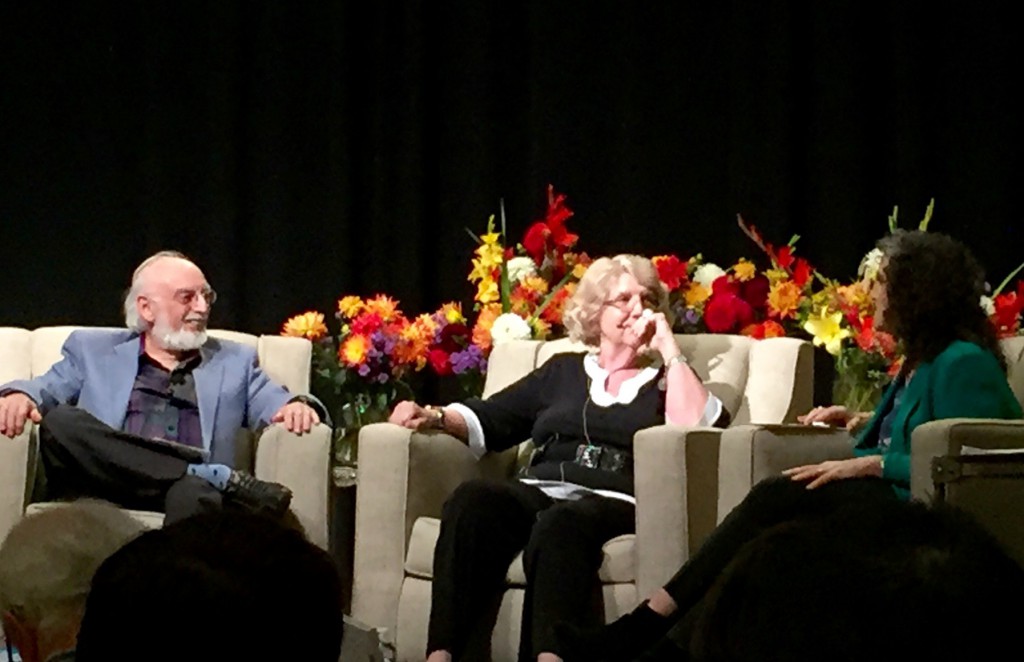 I recently returned from an amazing weekend with The Gottman Summit in Seattle, Washington. There were so many great take-aways about emotion and relationships and I wanted to share a few:
I recently returned from an amazing weekend with The Gottman Summit in Seattle, Washington. There were so many great take-aways about emotion and relationships and I wanted to share a few:
Emotion research by Dr. Robert Levenson from UC Berkeley finds that when we suppress our emotional expression, i.e. keep a blank face when feeling anger or fear, our blood pressure rises twice as high than if we had expressed the emotion. Additionally, when we suppress emotion, our physiological arousal lasts longer after the distressing event than if we were to express the emotion. He spoke of 3 key processes in emotion: reactivity (experiencing emotion), regulation (recovering from emotion) and recognition (preparing to pick up new emotional content in our environment), and identified successful ways to regulate emotion with: 1) shifting attention, 2) reappraisal of the situation, and 3) response-focused, such as amplification of emotional experiencing. I love how synchronistic Dr. Levenson’s work is with DBT and skills we teach, as well as how DBT conceptualizes problems with emotion dysregulation. He also cited research on activating emotional responses “in reverse”, such as experiencing a bit of joy and contentment when we curl up the corners of our mouth, as in the “Half Smile” skill in DBT. More information on Dr, Levenson’s work can be found here: http://psychology.berkeley.edu/people/robert-w-levenson
Dr. Paul Ekman from UCSF could not be physically present with us at the conference but joined us virtually through Skype on Friday afternoon. He shared his research on the universality of emotions and distinct markers for “reading” emotions in others, such as noting in anger that eyes are glaring with eyebrows lowered and brought together (think of the “anger” character from Disney’s “Inside Out”). He offers online trainings for anyone wanting to become more sophisticated in their understanding of emotional expression at: http://www.paulekman.com
Dr. John Gottman wooed us with his ability to put relationship science into mathematical theory: information theory, game theory, and non-linear differential equations. While this sophisticated math went way over my head, the data from his research reminded us that repair attempts, made after an argument, are most effective if we appeal to the emotional aspect of the conflict and if they occur early, before a lot of negative affect has started to grow between partners. Dr. Julie and John Gottman run The Gottman Institute, found on the web at: https://www.gottman.com
Saturday was a treat for me because Marsha Linehan, creator of DBT, presented an overview of the treatment. She was dynamic, as usual, and taught us all the “T” in the “TIP” skill. If you are unfamiliar with the skill, look up her new edition of the DBT Skills Training manual. If you have no cardiac issues or any reason to refrain from lowering your heart rate, you can use this skill for a 100% effective strategy to lower physiological arousal, often caused when we are in high distress, or to reduce rumination, that nagging circular thinking that can happen when we worry or if we are awoken in the middle of the night with nagging thoughts that won’t let us rest. I thoroughly enjoyed the opportunity to see Marsha steal the show and charm the audience of 300 or so therapists, coaches, and teachers. More about Marsha here: http://www.linehaninstitute.org
Dr. Richard Tedeschi had an amazing and inspiring presentation on “Post-Traumatic Growth”. Although this term may sound more like a unicorn than something one can really experience, Dr. Tedeschi’s research has found solid evidence for the phenomenon. Through his qualitative research with individuals who had made the best of their traumatic experiences in grieving or physical disability, Dr. Tedeschi has developed strategies for therapists. Some of these involve developing an “expert companionship” with clients and helping them create new meaning from the struggle that comes from reorganizing their sense of self and understanding of the world that is destroyed in the wake of trauma and loss. Dr. Tedeschi’s work is through the University of North Carolina, Charlotte, and he has a book on Post-Traumatic Growth, available here: http://www.amazon.com/Posttraumatic-Clinical-Practice-Lawrence-Calhoun/dp/0415645301
Finally, Dr. Julie Gottman guided us in working with couples when an individual’s trauma has impacted the partnership. She had fantastic insight into ways to help not only the partner who was suffering from PTSD, but also their spouse, in creating a healing relationship. She also has written a new book, which I happily purchased and got signed by the authors themselves (pure therapist geekiness, I know!) found here: http://www.amazon.com/Principles-Effective-Couples-Interpersonal-Neurobiology/dp/0393708357/ref=sr_1_1?s=books&ie=UTF8&qid=1445962219&sr=1-1&keywords=julie+gottman
